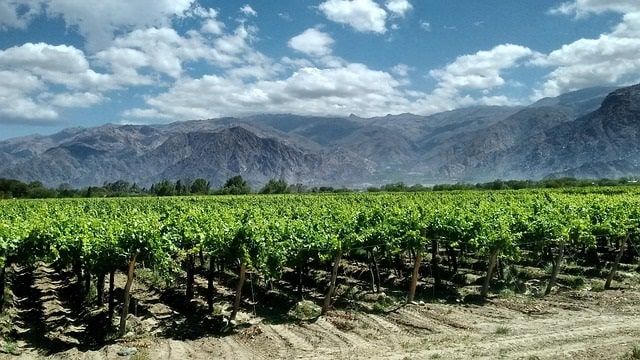75% of Argentina's organic wines are destined for the European Union
75% of Argentine organic wine exports are destined for the European Union, with Denmark and Sweden as the main importing countries, ahead of the United States, Switzerland, and Japan.

75% of Argentine organic wine exports are destined for the European Union, with Denmark and Sweden as the main importing countries, ahead of the United States, Switzerland, and Japan. According to statistics from the National Health Service (SENASA), more than 95% of wines certified as organic are exported and less than 1% of production remains in the country.
With 4,810,078 liters in 2018, the EU represents 75% of total exports, of that amount, 2,012,309 liters (67%) are destined for the Danish market and 1,195,574 liters (25%) the Swedish. The other countries importing Argentine organic wine are the United States (4%), Switzerland (3%), Japan (3%), and the remaining 15% is distributed in various destinations around the world, such as Brazil, Canada, Colombia, and Russia.
"It is more likely to get an Argentine organic wine in Denmark than in our country," explains Juan Pino, creator of Feria de Vinos Orgánicos y Sustentables, to be held from 1 to 3 August in La Botica del Angel.
According to a study carried out in 2016 by the Organic Agriculture Research Institute (FiBL), Argentina is the second country with the largest amount of organic agricultural land (3 million hectares), only behind Australia (27.3 million) and ahead of China (2.3 million). According to the report, the region with the largest areas of organically managed farmland is Oceania, with 27.3 million hectares, representing half of the world's organic farmland.
It is followed by Europe, with 13.5 million hectares (23%); and Latin America, 7.1 million (12%); Asia, with 1.8 million (9%); North America, 3.1 million (6%); and Africa, with 1.8 million (3%).
Organic production in Argentina
In Argentina, the largest area devoted to organic production corresponds to pasture for livestock, followed by fruits and vegetables. In the case of vine production, of a total of 7.1 million hectares of grapes worldwide, only 5.3% (almost 380,000 ha.) are certified organic.
Argentina, according to the FiBL report, presents 2.8% of its total vineyards with organic certification, behind the European Union (8.4%) and New Zealand (5%); and ahead of the United States (2.7%), China (2.4%), South Africa (2%), Portugal (1.8%) and Chile (1.5%).
Within the EU, Spain, France, and Italy represent 73% of the total organic vineyards in the world; although China will soon become the first country in terms of surface area and Turkey is gaining importance in the world of organic viticulture, with 13,961 hectares of certified grapes.
"Organic production is a very important commercial opportunity, as the Argentine standard has been 100% equivalent to the European standard for many years", concluded Pino.




